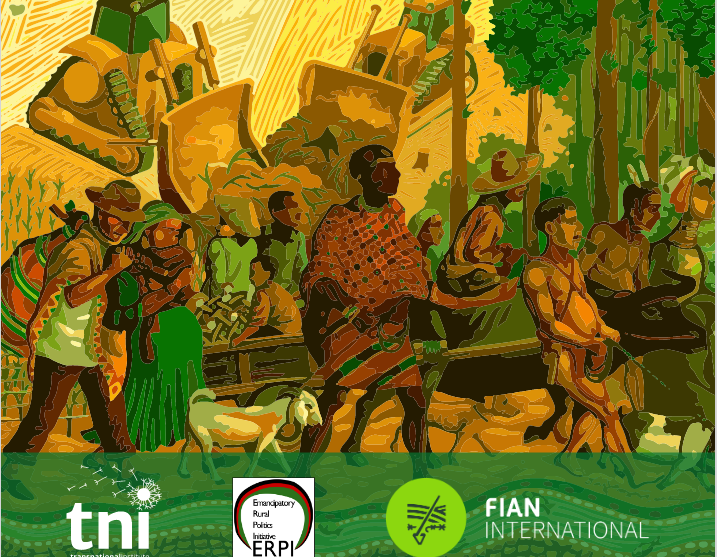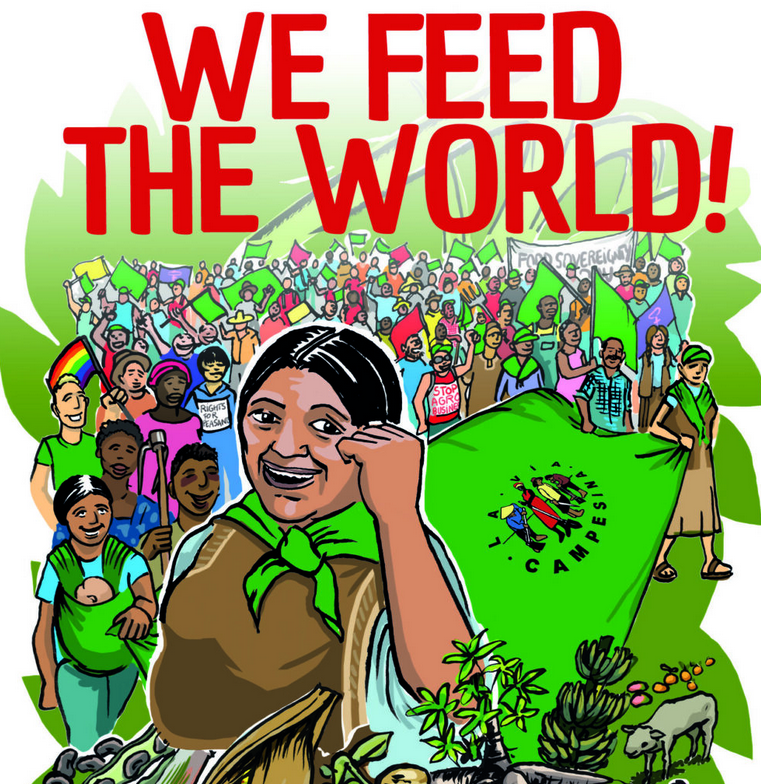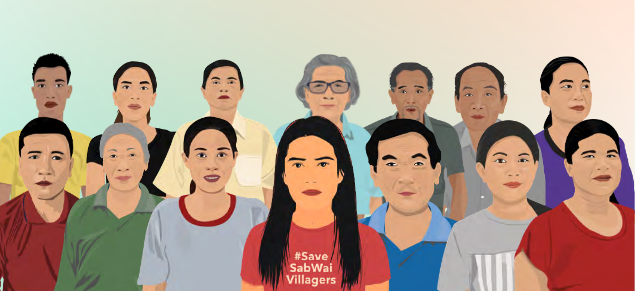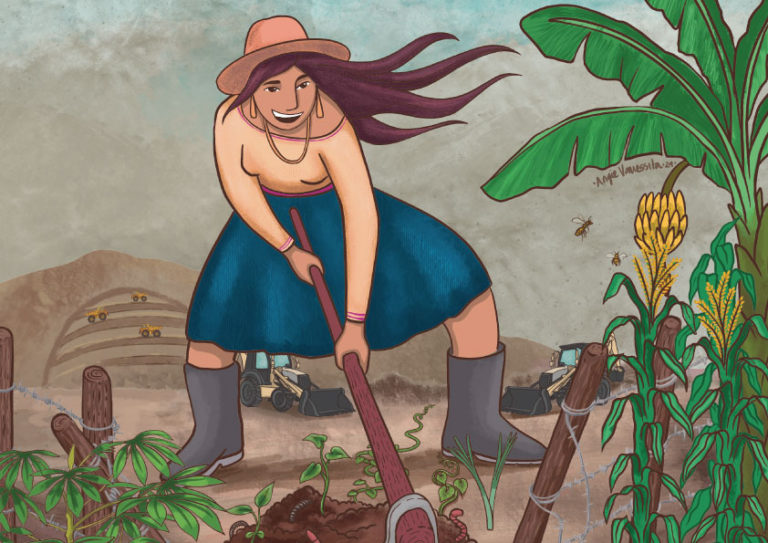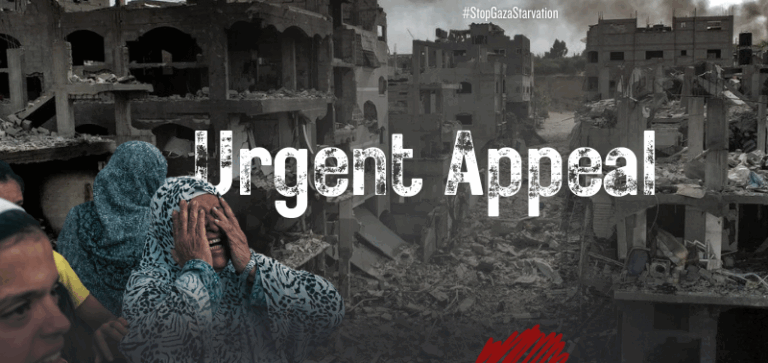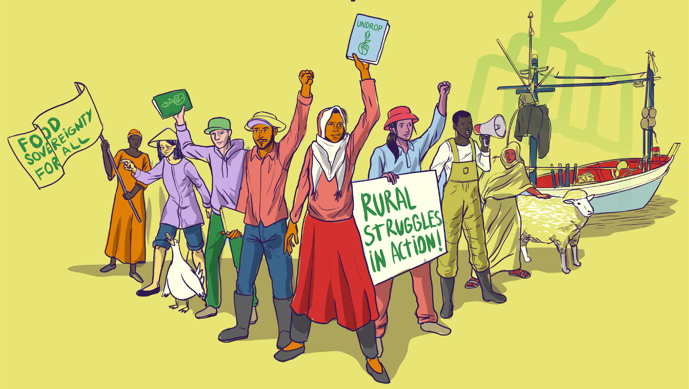A View from the Countryside: Contesting and constructing human rights in an age of converging crises
This text is a collective publication of the Transnational Institute, Emancipatory Rural Politics Initiative (ERPI) and Fian International.
Abstract
In the face of the interlinked global financial and climate crisis, there is an urgent need to understand and use human rights frameworks in radical ways. Climate change itself poses massive threats to human rights, but so too do main-stream technical and economic climate ‘solutions’, and rising authoritarian voices and movements around the world.
The battle for resources and territories, including land, water, fisheries, and forests is becoming increasingly intense, with land-intensive renewable energy projects and the drive to marketise carbon and biodiversity posing a paradoxical additional threat to nature and to the livelihoods of rural and indigenous people around the world.
At the same time, harsh political experience with actors who deploy human rights language in self-serving ways has left many marginalised groups understandably critical of the concept. Some actors have come to see human rights as a captured discourse, as likely to serve as a mechanism for displacing them as to protect their homes, territories, and communities. Many of the contradictions around human rights are particularly intense in rural areas, giving rise to criticisms that the language and mechanisms of human rights are fundamentally elite and urban-biased.
However, although there are many valid criticisms of human rights and of the political uses to which they have been put in the last 70 years, rejection is far from the only response. Many actors are also using the language, mechanisms, and instruments of human rights in new ways, pointing the way towards more radical visions and possibilities which are more able to respond to their struggles. We will explore a few of the main critiques of human rights in some detail and suggest two ways in which the distinctive experiences of rural people might help to cast light on the weaknesses of mainstream human rights frameworks, while pointing the way towards more radical visions. Finally, we will end by looking at two new international human rights mechanisms with special impacts for rural communities, and exploring how people’s uses of these may point in the direction of a re-grounded, re-vitalised, and re-radicalized vision of human rights.

